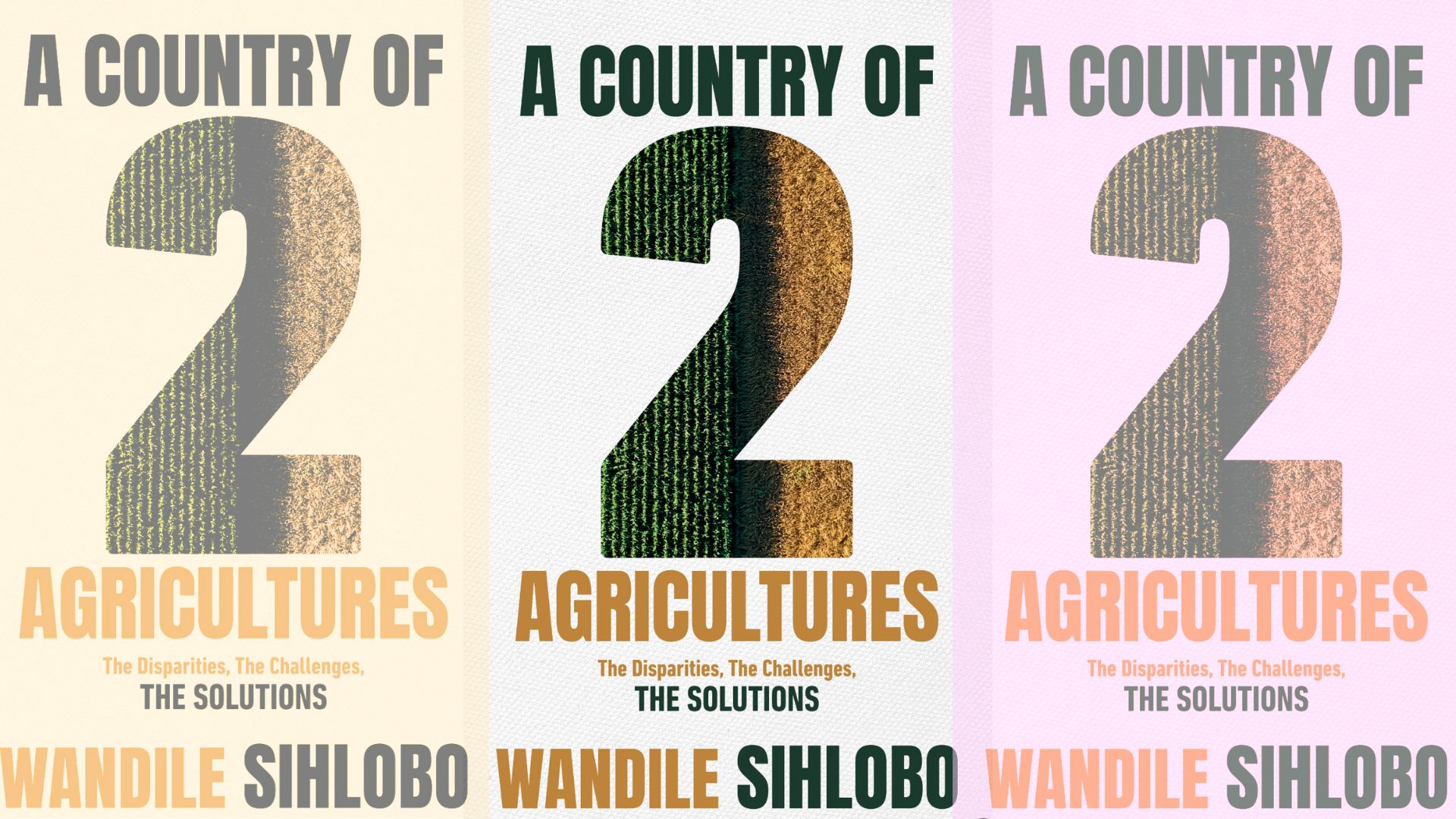On the sunny morning of 5 April 2021, when the Covid-19 pandemic had provided a breather following a sharp wave of infection, I drove from my office at the Agricultural Business Chamber of South Africa in Pretoria to a farm in Bronkhorstspruit.
Bronkhorstspruit is a small town of roughly 3,720 people, located 50 kilometres east of Pretoria in the Gauteng province of South Africa. I was on a visit to Gift Mafuleka’s farm. Gift is a young, black commercial farmer who hails from the Esikhawini region of Richards Bay in KwaZulu-Natal.
He started farming commercially in Bronkhorstspruit after a successful stint at McCain Foods South Africa (McCain), where he had progressed to crop manager on one of their farms.
After he left McCain to start his own enterprise, he leased a farm from the South African government, which it had obtained from private owners for the purpose of land reform — known as Proactive Land Acquisition Strategy (PLAS) farms, one of the land redistribution strategies introduced in 2006. The farms acquired in this manner are not transferred to black land reform beneficiaries; instead, they are given non-tradable short-term leases, while the ownership of the land remains with the government.
These leases typically vary from five to 30 years, followed by the option to transfer ownership, which seldom happens. This time frame in itself is frightening, as it suggests that if one receives a lease at age 30, one might have an option to buy the land at the age of 60 — this in a country where World Bank data suggest that life expectancy was 64 in 2019. This means a person can farm their whole life without ever feeling ownership and making a tangible investment in a farm under legislative arrangements such as the Proactive Land Acquisition Strategy.
There might be other arguments against this point, but this book is not about land reform, so I won’t dive into this further. Suffice it to mention that this method of land reform has many downsides that constrain black farmers, some of which I discussed in my previous book, Finding Common Ground: Land, Equity & Agriculture. The commonly cited challenge is the lack of collateral, which leaves the land reform beneficiaries cash-starved and often causes their farming ventures to fail.
Gift’s story on the day of my visit was a positive one. The Cable News Network (CNN) was shooting a segment for its show Connecting Africa, with journalist Eleni Giokos showcasing the success of African farmers and the untapped potential in this sector.
They chose Gift, in part, to show the success of young black farmers. This is not mentioned in the show, but was shared with me by the producers in our conversations after the shoot. Gift was in the middle of cabbage harvesting, one of various vegetables produced on his roughly 350-hectare farm.
My role there was to speak broadly about the untapped agricultural potential and avenues of investment in South Africa’s agriculture and in other parts of the African continent. The expansion in the area of plantings that focus on labour-intensive and high-value agricultural commodities and investment in various value chains were some of the issues we discussed, along with opportunities for agricultural input providers.
After everyone had left, I sat down with Gift to chat about agricultural conditions, which in his case were positive as South Africa received a lot of rain in the 2020/2021 summer season. Gift was curious to know about the agricultural policy discussions in Pretoria and what we thought was the way forward to improving the participation of black farmers in commercial agriculture. After all, as of 2022, black farmers have produced between 5% and 10% of the total agricultural output in South Africa.
What Gift was essentially asking about were the practical means of confronting the dualism that exists in South Africa’s agricultural sector, while simultaneously ensuring the growth and sustainability of the sector.
Entrenching the divide
The poor and slow implementation of land reform, inefficient government decisions and support systems, poorly structured financial support, bureaucratic delays, drought and diseases have all entrenched the divide between commercial agriculture (mainly white) and subsistence farming (mainly black).
Indeed, at the dawn of democracy, few people probably thought that South Africa would still be battling with the phenomenon of “two agricultures” — or dualism — nearly three decades on. Although some progress has been made, as black farmers have joined commercial production and supply chains, the numbers are still disappointing, at less than 10%.
Admittedly, there are commodities in which the inclusion of black farmers is much better than others. A case in point is the wool industry, tomato production and cattle, where black farmers’ contribution is more than 9%. There has been a deliberate effort by both the private sector and government to jointly support black farmers in these commodities; hence their inclusion at the commercial level is notable.
I should also emphasise, however, that this is at best a guestimate and unfortunately hides the amazing progress in maize production, wool production, commercial beef output (where black farmers are responsible for a substantial share, of 34%), and some horticultural products.
In addition, the numbers also do not consider transactions in informal value chains and sales in small local markets. This is because the reported shares are largely extracted from records provided by the commodity organisations as part of their commitment to transformation.
The incomplete picture is also a result of how the agricultural census conducted by Statistics South Africa was done by only including Value-Added Tax (VAT)-registered farmers. The 2017 agricultural census excluded 92,634 households that practised commercial farming as their main source of income, and a further 122,200 households that practised commercial farming as a secondary source of income (these are estimates from Statistics South Africa’s Community Survey of 2016).
Therefore, one can assume that around 214,800 farming households (black and white) who practise some form of commercial farming were excluded from the agricultural census. Most of these are micro-enterprises with gross farm incomes below R500,000 per annum, but still are commercial since they sell produce.
Lack of direction
There are several reasons behind the slow progress in black farmers’ total share of farm output. First, a lack of direction, critical and fast decision-making in the national and provincial governments, as well as poorly designed programmes to support black farmers to become part of the commercial sectors. These have been a challenge for years.
Second, there has been poor adoption of the latest technology to increase productivity. The commercial farming sector, whose output has more than doubled in real terms since 1994, was able to leverage technological innovation and expansion in export markets when South Africa integrated into the world economy after years of isolation, but new entrants have not always succeeded in doing so.
Third, there is a lack of collaboration between the government and the private sector as manifested in commodity organisations, agribusinesses, commercial farmer organisations, etc. This results in the slow implementation of farmer development plans. The farmer organisations are frustrated with the lack of delivery and extreme bureaucracy.
Fourth is the inefficiency of many of the provincial departments of agriculture. This results in poor and non-delivery of critical programmes to support farmers with effective broad-based support programmes, especially in the former homeland regions in KwaZulu-Natal, the Eastern Cape, Mpumalanga, North West and Limpopo.
This list is not exhaustive, but it is to provide a reader with a feel of the challenges that confront new entrant black farmers in South Africa.
These many factors contributing to the continuation of dualism in South African agriculture, and frustrations for young black commercial farmers, like Gift Mafuleka, only require effective policy-making and the right incentives
Overall message
This book will focus less on history and more on the present and the future. My motivation in writing this book was to understand why the agricultural sector is still marked by inequalities nearly three decades after the onset of democracy.
The contribution of this book is to explain why these disparities have persisted in the democratic era, and what it would take to overcome them. I dissect these issues against the backdrop of major shifts in the agricultural landscape occasioned by the Covid-19 pandemic, Russia-Ukraine war, technological shifts, and changing external market conditions.
In the book, you will find the story of the evolution of South Africa’s agriculture since 1994, and the particular challenges facing the sector. Amongst other subjects, the often ignored importance of agricultural finance, the importance of trade for South Africa’s agriculture, as well as agriculture and technology. The book is intended to give the reader a full picture of the sector, painted less in arcane numbers and more in a narrative form. DM
A Country of Two Agricultures, by Wandile Sihlobo, is published by Tracey McDonald Publishers and is available in all major bookstores in South Africa with a recommended retail price of R280. The Kindle version of the book is here.
Wandile Sihlobo is an agricultural economist from South Africa, and his full profile is here.





